Women's World Cup: What challenges do female players still face?
- Published
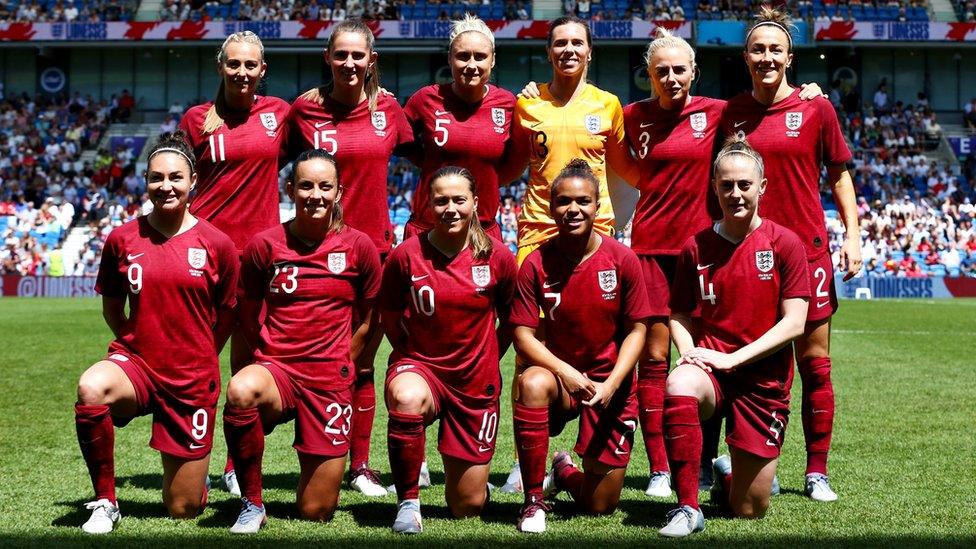
Almost a century ago women's football received a major setback.
A ruling by the English FA effectively banned women from playing professional football for 50 years until 1971.
Yet, now England's Lionesses rank third in the world and are among the favourites to win the Fifa Women's World Cup in France.
It's major progress since the FA changed its ruling in 1971.
So what are the challenges women footballers still face?
Radio 1 Newsbeat has spoken to both England internationals and grassroots players, asking them to reflect on what they still have to put up with in 2019.
Social media trolling
'It has been really hard to deal with' - Alex Scott on sexist abuse
Players say social media trolling is a current issue facing the modern game.
In May, former England footballer Alex Scott opened up about the sexist abuse she faces for doing her job as a football pundit.
The 34-year-old said she considered quitting social media but didn't want to "allow them to win".
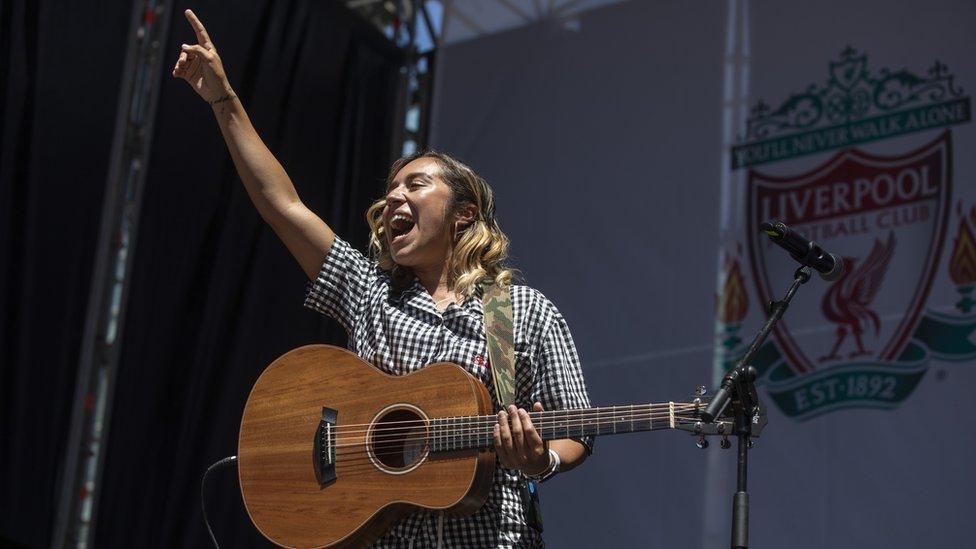
Chelcee Grimes performing at the Liverpool fan zone before the men's Champions League final
Chelcee Grimes, who plays for Fulham as well as performing as a singer, tells Newsbeat: "Just because [Alex Scott] is a woman I think she gets awful, awful backlash."
The 27-year-old added: "She knows probably 99% more than the people who are sat there watching the TV from home."
It's something 22-year-old England star Leah Williamson is familiar with too.
"I've experienced all the same things most of us have - the abuse online.
"[But] it won't be a distraction for me in the tournament - I want people to see what we're getting up to because it will be a hell of a journey," she tells Newsbeat.
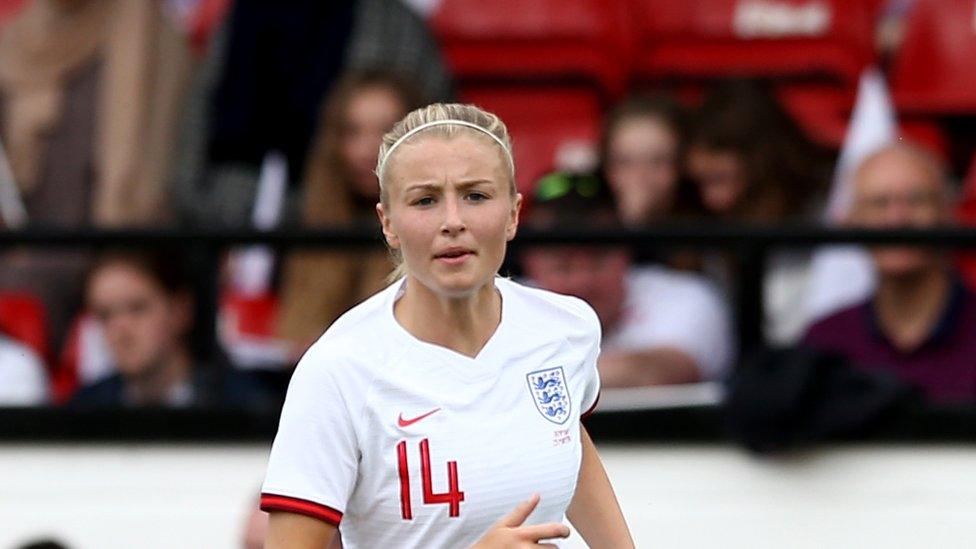
Leah Williamson in a pre-tournament friendly for England
But despite the negativity being aimed at professional players online, grassroots players still feel encouraged to play.
One young footballer inspired by older generations is Jasmine Gussin. The 18-year-old says watching Alex Scott motivated her to play.
"I've grown up supporting Arsenal, the women's and the men's teams, and just seeing how big [Alex] got in the football world, and still is, made me think, well I could do that too," Jasmine says.
Jasmine is a participant in FFEM (Female Fitness Education and Motivation), which works with girls and women from mostly low income areas.
Diversity in the game
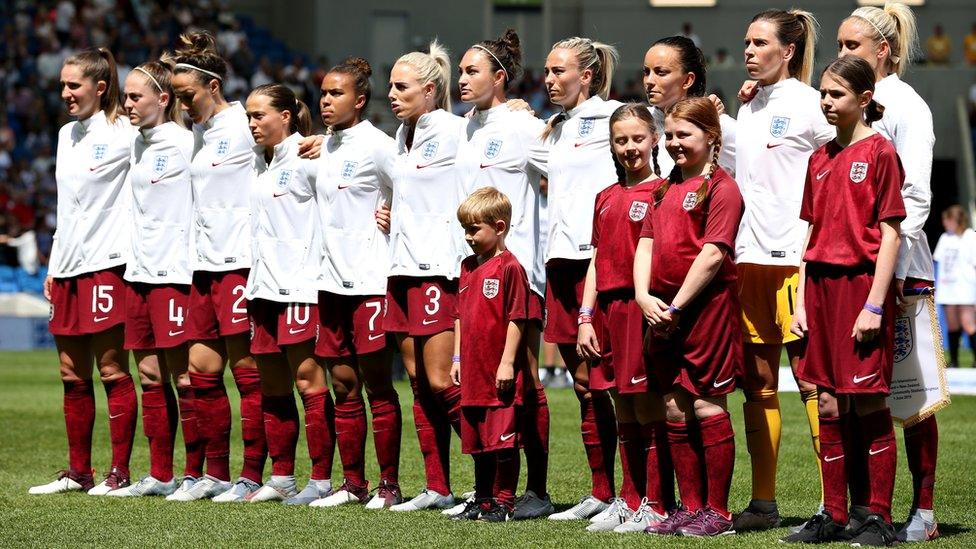
One of the football coaches working at the FFEM project says that to move forward, women's football needs to improve its diversity.
Melissa Nathan-Pepple, 29, tells Newsbeat she doesn't feel the governing bodies of the sport are doing enough to represent the black and minority ethnic community.
"Younger players understand that there's a current look in football at the moment, which a lot of the black girls that I speak to don't fit into," she says.
"Diversity is the foundation of every community, so I feel like bringing in people from different communities will spread the word a bit more.
"Regarding the BAME community, I don't think there's enough outreach."
England v Scotland celebrity challenge: Who will be victorious?
FFEM founder Karena McKay, 30, says she thinks women's football is still at the "very early stages" of its development.
"But it's breaking out to become a sport that many girls will aspire to do," Karena tells Newbseat.
"There are so many playing opportunities now. There are so many women's footballers who are actually in the media"
The pressure to perform
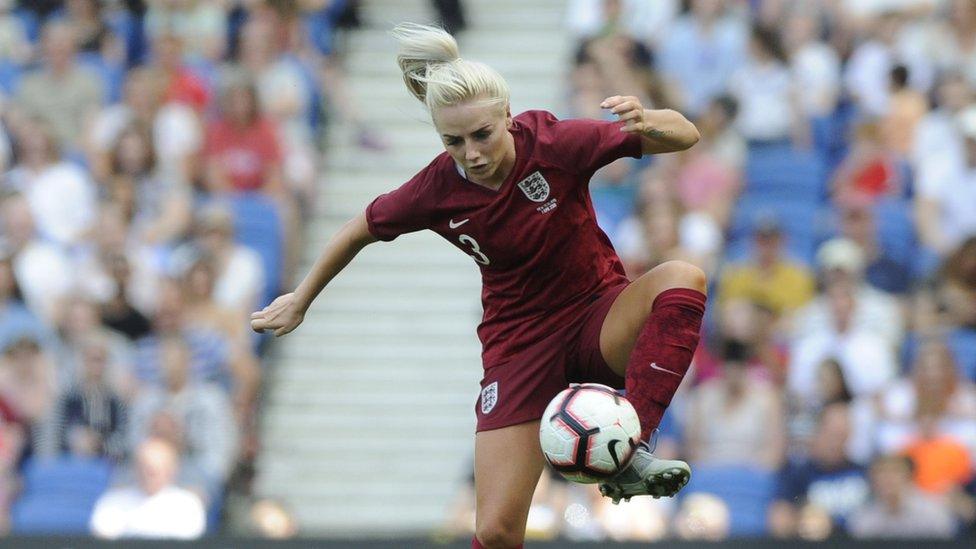
Alex Greenwood in action for England
England defender Alex Greenwood says decades of hard work has left women's football in a "really good place."
The 25-year-old believes if the Lionesses perform well during the World Cup and "achieve something special" they have the potential to change the game "forever".
But that can add pressure on the squad - pressure that's relatively new as the women's game grows in profile.
"There's still a long way to go, absolutely," she says.
"I can stand here now and when people say: 'What would you tell a young girl', I'm like: 'You can be me'."


Follow Newsbeat on Instagram, external, Facebook, external, Twitter, external and YouTube, external.
Listen to Newsbeat live at 12:45 and 17:45 every weekday on BBC Radio 1 and 1Xtra - if you miss us you can listen back here.
- Published18 August 2023
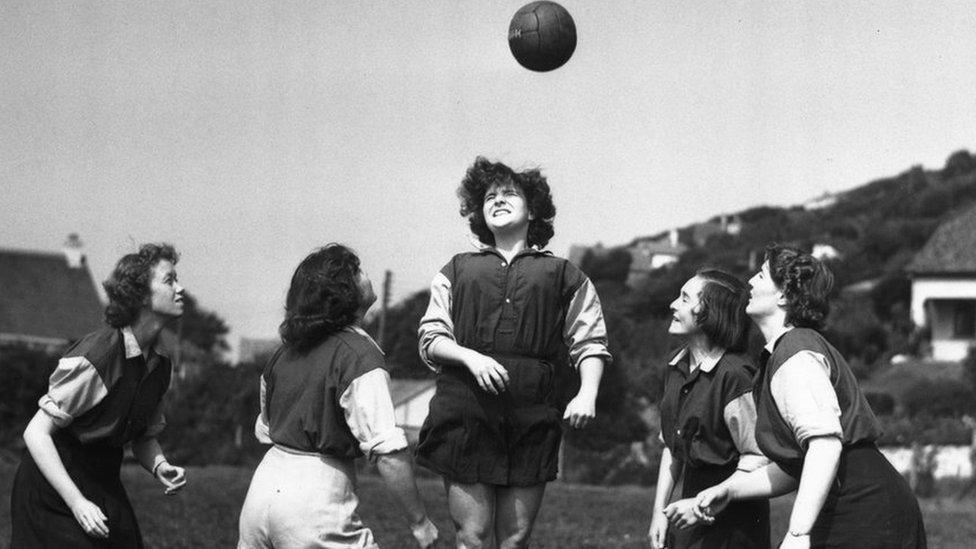
- Attribution
- Published2 June 2019
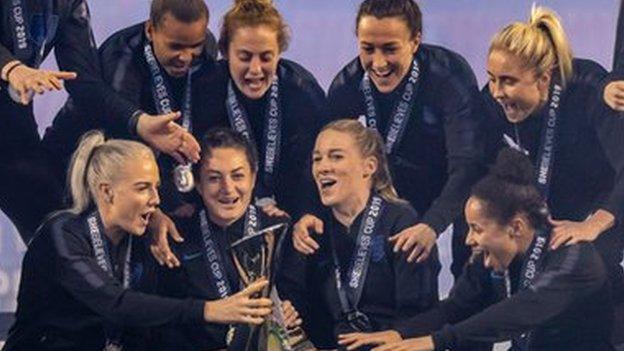
- Attribution
- Published9 May 2019
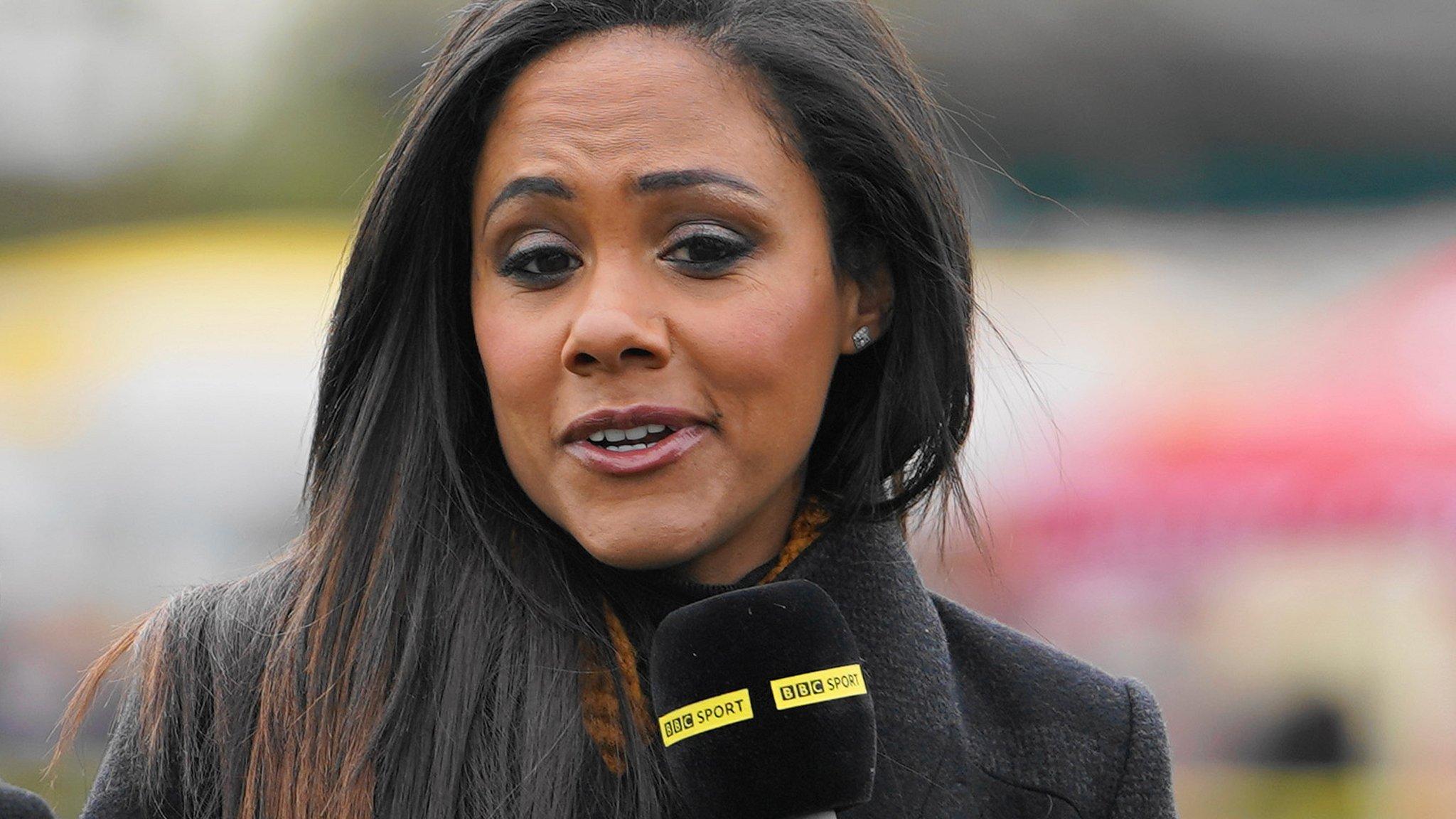
- Attribution
- Published11 May 2019
